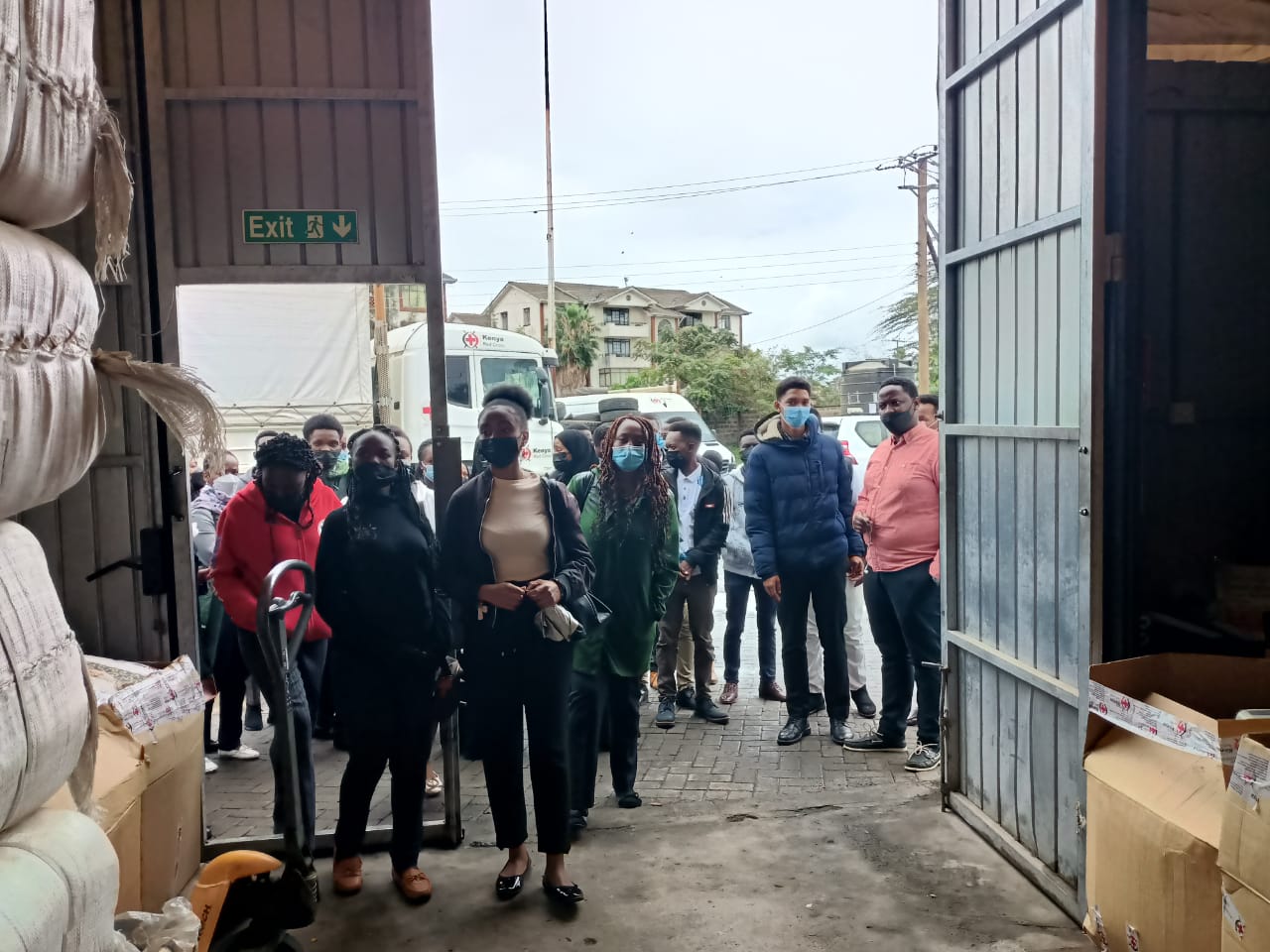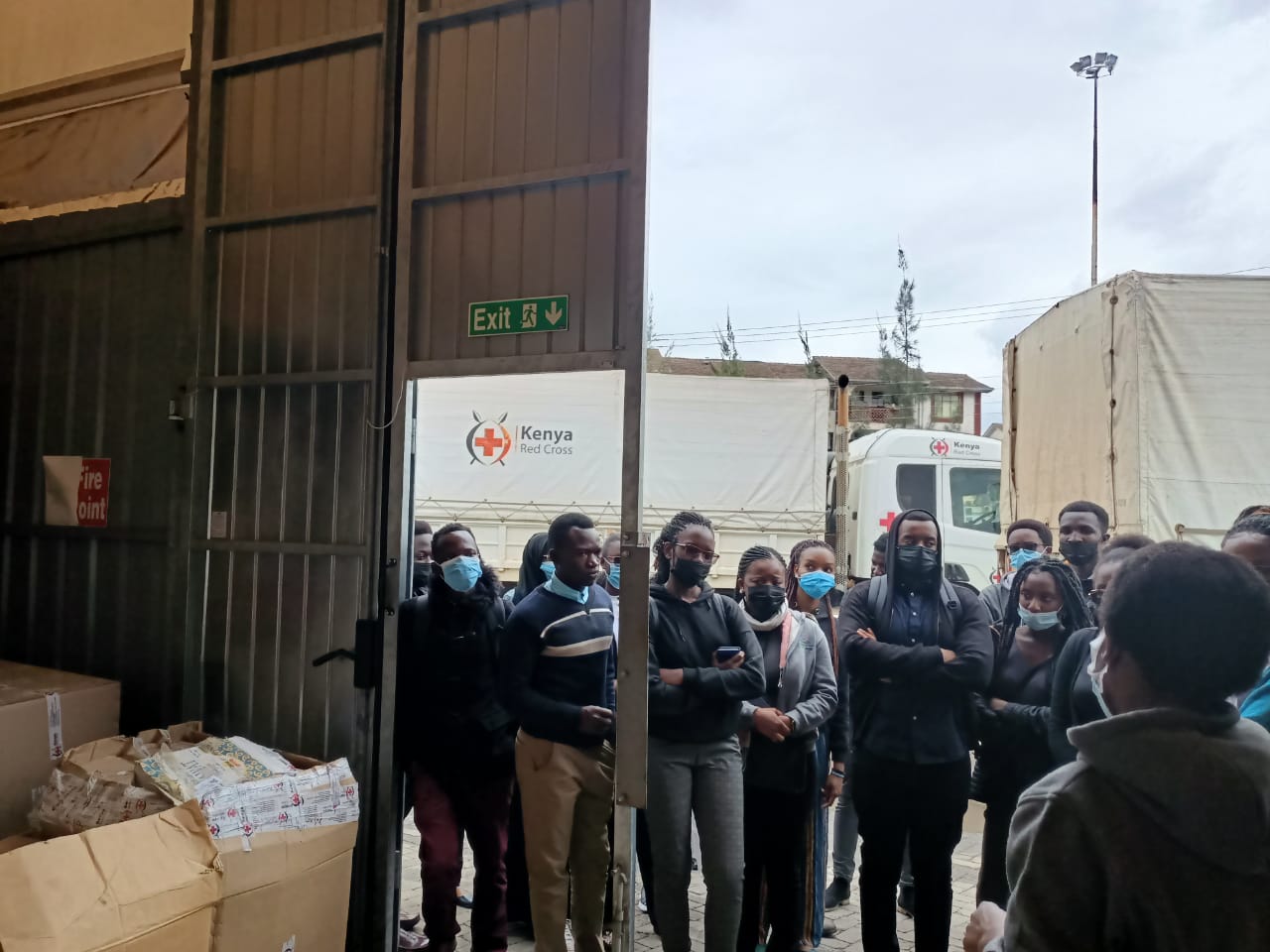Far too often, the human race continues to face challenges brought about by natural and even man-made disasters. Calamitous occurrences in our world today are intensifying with more lives being lost to such happenings. Consequently, humanitarians from different spaces have woken up to the provision of humanitarian assistance for the protection of human life. At the centre of such humanitarian aid provision, lie the processes of supply chains that are crucial for enhanced humanitarianism.
On Friday 3rd December 2021, students from the Bachelor of Supply Chain Management Programme and the Bachelor of Commerce Programme set out for an industrial visit to the Red Cross Society logistical centre. The students were accompanied by their Lecturers; Mary Aming’a and Clinton Wanjohi.
The Industrial visit began with a tour through the dispatch section where the students learnt more about the healthcare humanitarianism supply chain. This section mostly touched on the provision of ambulances as a relief to emergency medical care. The students were then taken through the ambulances monitoring system after which they were shown around the different warehouses and the categories of supply relief items such as dignity kits.
The Bachelor of Commerce students had a chance to learn from the commercial structural processes for supply chain management from the pre-qualification of suppliers to the procurement down to storage and, finally, service offering to customers. Equally, the humanitarianism supply chain class was advantaged with the learning of special aspects of humanitarian supply chains. The Red Cross society provided a platform for the students to engage and interact with the system in appreciation of treating human life as sacred from a supply chain perspective.
As an educator, I was particularly intrigued by the passion and inherent humane aspect of the humanitarianism logistician who was so much into the belief of neutrality and impartiality that per se forms the foundation of the humanitarian supply chain.
The industrial visit ended with a Question and Answer (Q&A) session where the students got the opportunity to ask the Red Cross team questions. The interactive sessions gave the students a chance to deepen their understanding of the humanitarianism supply chain.
One of the most neglected dockets around supply chain education learning is on the humanitarianism supply chain with very few global higher learning institutions embedding it in their curricula. While it is an ignored aspect, the world continues to face disasters that call for supply chain humanitarianism assistance. It is high time that institutions of higher learning rethink their supply chain course syllabi and structure to incline them towards embedding humanitarianism supply chain.
There is a lot to learn from institutions that have taken the road less travelled such as the MIT Humanitarian lab, Harvard Humanitarian initiative and the Strathmore University supply chain humanitarianism industry-classroom initiative. For instance, the MIT humanitarian lab teaches the world a research approach to the construction of efficient and effective humanitarian supply chains.
About the Bsc. Supply Chain and Operations Management Programme
Supply chain and operations management calls for integration in the procurement of goods and services, inventory management, transportation to and from production and service facilities, distribution of goods and services, and the information system infrastructure to support the processes. At the core of it is a focus on quality management, lean systems and information systems implementation.
The Bachelor of Science in Supply Chain and Operations Management programme is designed to integrate supply chain, logistics, operations and digitization. Special emphasis is placed on Production, Logistics, Big Data, BlockChain, Automation and Artificial Intelligence, and how they will impact supply chain and operations management in the near and far future. April 2022 intake is ongoing! Apply here
By Mary Aminga
Would you like to share an article? Write to us at sbscommunication@strathmore.edu
Share This Story, Choose Your Platform!
Your journey to business excellence starts here. Subscribe today and be at the forefront of innovation and leadership.










